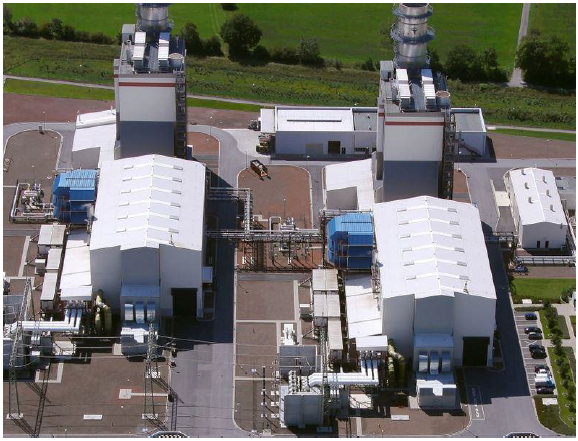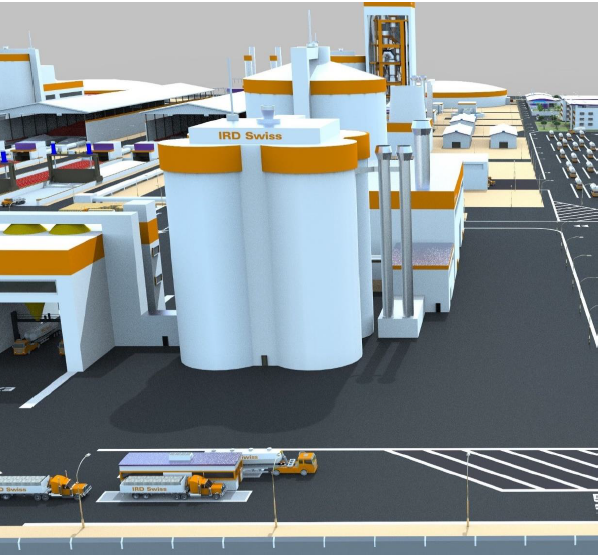Projects
SUMMERISATION OF NALUT - CEMENT FACTORY – PROJECT
From importing building materials, the company stopped from 2011 to 2019 but is now back and presenting its first project: an eco-friendly cement factory using modern German technology to produce up to 14,000 tons per day.


The Company, ALHEDAB Cement Company, aims to establish and
operate a new cement plant for the production of all types of PORTLAND™ cement,
complementary and subsequent industries. Commercial register no. 909 has been
issued on 16/MAY/2012.
On 24/OCT/2019, an agreement was made with the National
Mining Corporation for utilising the following quarries for thirty years from
the beginning of actual production in return for paying 3% of net profit/to
final product (cement/clinker) at plant site; this would mean that a max. of
0.05 €/to of raw materials.
•
Clay quarry at Wazin City,
Gypsum quarry at Bir Al-Ghanam.
•
Limestone quarry Nalut in
front of the plant site.
•
Sand quarry Nalut beside to
the Limestone quarry in valley.
An initial approval from the Government of
National Accord Ministry of Local Government
Municipality of Nalut on 24/Mar/2019 was given for establishing an
ordinary Portland cement plant with an annual capacity of 3.6 million
tons.
Therefore, the licenses given must be adapted by ALHEDAB so
as the plant can meet the planned capacity of 12,000 tons per day. This
agreement for increased capacity has already been declared by the Government.
Further negotiations will follow in the next couple of months between the
shareholders of ALHEDAB and the Municipality of Nalut.
It can be assumed that there will be two separate licences
released by the Government, to ensure the ALHEDAB cement factory can produce a
daily capacity of 12,000 TPD PORTLAND™ cement production. It is believed that
the shareholders of ALHEDAB Cement Co. will reach such an agreement before the
finalisation of the plant so that there is no delay to start construction in
January 2024 with the full and complete approvals.
A further objective is to reach an agreement with foreign
purchasers (so called OFF TAKE agreement) that allows ALHEDAB Cement to export
Ordinary Portland Cement™ (OPC) to adjoining countries like Iraq, Syria, Sudan
and Saudi Arabia amongst others, because all those countries have the same
strong need for cement as Libya does.
The finished plant shall be situated in the Municipality of
Nalut, 65 KM road distance eastwards from the Tunisian border. The plant shall
be erected in an area where in a circle of an estimated 350 KM no other Cement
plant exists.
Except for the Clay all the main process additive material
is all in a circle of 6 KM from the plant.
Utility water, for cooling the burning process during the
cement manufacturing, is being supplied from resources that run parallel and
close to the plant site. Having a cheap available source to gain utility water
for a cement plant is not normal in the desert regions and this is a strong
advantage for this project.
The road network ensures a well-connected movement and
transportation route in all directions to the Mediterranean shoreline. The
closest usable Libyan port to ship the cement as well as to unload spares and
low-weight equipment is about 200 KM away at ZUWARA.
There is also the available, more secure and cost effective
option of using the Tunisian Zarzis port ,
a large space storage was offered
to ALHEDAB company by the authority of the port so ships do not have to wait
longer (as is the case in main Libyan ports) therefore a efficient loading
schedule can be achieved.
The new Cement plant will be the largest and most modern
cement plant in the Northern Africa region.
Another significant advantage of this project is the
availability of extremely cheap fuels of HFO and Natural Gas. At the same time,
the project design of this plant will ensure the use of the most modern plant
technology along with state-of-the-art equipment so as to ensure maximum
efficiency and significant cost effective advantages.
The Pros:
ü Excellent raw material qualities in huge quantities available
around the Nalut area.
ü Apart from Gypsum and a small portion (1%) of Iron Ore that will
be delivered from the Gypsum quarry at Bir Al-Ghanam, all raw materials such as
Limestone, Clay, Sand and Marly Limestone are available on or extremely close
to the planned site.
ü The availability of water and natural gas is alongside the
planned construction site of the factory
ü The most expensive cost factor of the Cement factory is the fuel
for firing the kilns and the electric turbine generators. The fuel shall be
natural Gas which is available locally at very cheap costs. This means that
higher margins can be achieved through lower production costs of the
Portland-Cement.
ü Adequate water supplies are available through using the pipeline
of the “Great Man Made River” which runs alongside the planned construction
site therefore there is no expensive deep drilling for water required.
ü The entire Plant is designed for maximum production of
Portland-Cement using highly effective technology from Germany. All equipment
is planned to be delivered from Germany and represents state of the art
equipment in the Cement industry. It has been agreed that the factory will be
supported for the first 10 tears with regards to operating and maintenance
(O&E) therefore there will be adequate technical support so as to maximise
production.
ü It is planned to build a Combined Cycle Power Plant (CCPP) in
conjunction with the construction of the Cement factory so the factory has its
own electricity generation capability making the factory independent of the
grid thereby ensuring continuity. Any surplus power can be delivered (sold via
the grid) to Nalut city as well as to planned new homes surrounding the factory
area.
ü During the erection of the plant all the staff required to run
the plant will be trained as part of the project mobilisation in the projects
own training facility onsite. Only the process control engineers, electric
engineers and laboratory staff will be trained abroad.
ü Producing the highest quality controlled and certified PORTLAND®
Cement means getting the best sale price. Currently Cement prices are rising
steadily. During the feasibility study process which was completed in 2019 it
was calculated a return of 65 EUR/ton, we currently can assume 95 to 110
EUR/ton meaning a potential additional income of more than 30% against previous
projections.
ü It is envisaged that Because of a lack of cement production in
North Africa and the enormous demand of Portland Cement worldwide the Nalut
Cement plant project production will not suffer from lack of demand.
ü Many local wholesalers have already contacted ALHEDAB company to
sign contracts to buy the entire cement production before even starting the
construction of the plant
ü We are confident that the breakeven point of the total CAPEX
investments can be achieved in the 5th year. This means that investors can
achieve a net profit earlier than calculated in the feasibility study.
The Cons:
v The distance between the Nalut project plant and the nearest
available Libyan port in Zwara city is about 200 km and a distance of about 250
km to Tunisia Zarzis port. Therefore, a truck fleet must be purchased to
guarantee a permanent and steady Cement delivery 24 hours. This will increase
the manufacturing cost about 4,50 EUR/Ton.
v The normally cheap available natural Gypsum is about 170 KM far
from the site of the plant. So, the price for getting the Gypsum delivered to
site was also calculated. Because only 5% per ton Cement is required. The cost
of Cement will not exceed 4 EUR / Ton
v The Libyan Dinar is currently not a freely convertible currency.
This means that a higher exchange rate ratio must be calculated as a financial
risk and fiscal agreement with the CBL should be considered. Having said that
entities such as Libyan Iron and Steel Company sell in USD and are therefore
able to mitigate this risk
Final recommendation:
IRD Swiss recommend to potential investors to invest in this
project.
